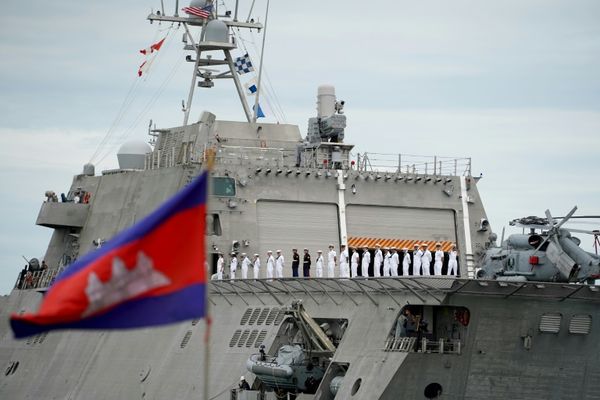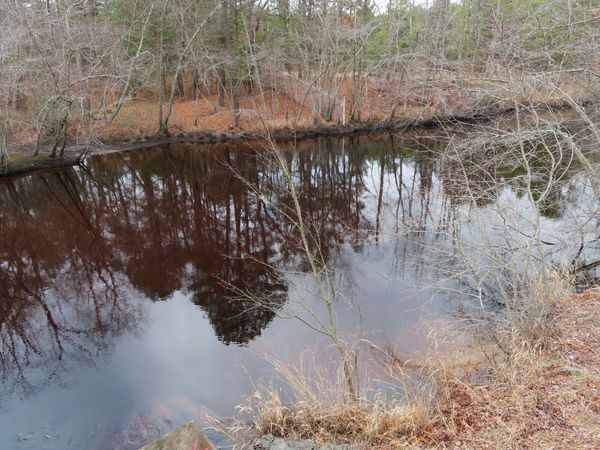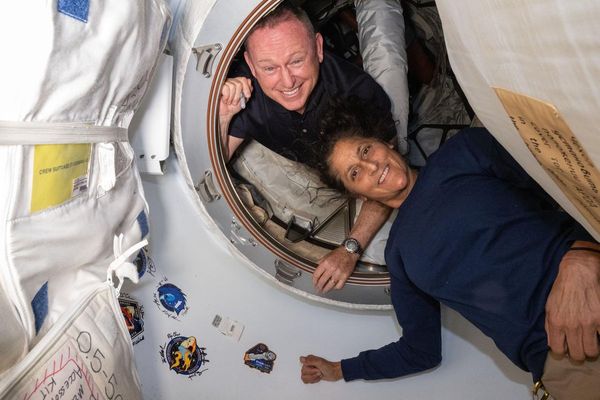
HOUSING, HOUSING, HOUSING
We start the week focusing on housing as the government gives thousands of social and affordable homes the green light while its Help to Buy bill is being put up for debate in the Senate, where it is expected to fail.
The ABC reports 185 projects have been green-lit in the first round of grants allocated under the government’s Housing Australia Future Fund (HAFF). The national broadcaster says the government believes it will result in 13,700 homes and put it ahead of the target to build 40,000 homes in the fund’s first five years.
The AAP writes the HAFF funding will unlock $9.2 billion of investment in social and affordable housing. The announcement is also set to include more than 1,200 homes for women and children escaping domestic violence, as well as older women at risk of homelessness.
The newswire says construction on almost 40% of the builds is set to begin in this financial year and quotes Prime Minister Anthony Albanese as saying: “I grew up in social housing. I know how important a roof over your head is and the opportunities it creates.” The ABC quotes Housing Minister Clare O’Neil as saying the government is “back in the game of delivering social and affordable houses at scale”.
Meanwhile, the Help To Buy and Build to Rent schemes continue to face significant opposition, with the ABC reporting the government appears resigned to their failure.
As Guardian Australia recalls, with the Greens trying to push for cuts to negative gearing and capital gains tax concessions in negotiations, the government has not moved from its position. Last week, Albanese said in question time that Labor had “a $32 billion homes for Australia plan, some of which is still being blocked by the Greens and the Coalition in the Senate”.
The AAP reports Greens housing spokesman Max Chandler-Mather saying the party could not support the schemes in their current form. He said the plans would “drive up house prices and give tax breaks to developers to build expensive apartments they already planned to build”. He added: “We have made clear to Labor our negotiating asks including capping rent increases, a mass build of public housing and scrapping the tax handouts to property investors denying millions of renters the chance to buy a home, but Labor have offered nothing in return.”
Also in housing, Guardian Australia leads this morning on the fact Australians are paying the most expensive advertising fees in the world to sell their homes online.
NSW COUNCIL RESULTS
The vote count in the NSW local government elections is set to resume today. The AAP notes that while some candidates were declaring victory yesterday following the vote on Saturday, the full results won’t be announced until early October. The newswire reports Labor “looks set for a sweeping victory in the Inner West council” with independent Clover Moore claiming victory and an unprecedented sixth term as lord mayor of Sydney.
The Sydney Morning Herald meanwhile reports NSW Labor strategists have warned results in key south-western Sydney councils could spell trouble for Albanese in the upcoming federal election. The paper said strategists had been bracing for backlash over the federal party’s position on Palestine and while results were better than expected, “the ALP suffered a 10% swing against them in the Bankstown ward, which has a high proportion of Muslim voters”. A senior Labor campaigner was quoted as saying: “It is pretty clear that we took a hit on Gaza, but there would be other factors like cost of living. On the booths, there was an anti-Albo sentiment.”
As the counting continues and results are claimed, the AAP suggests the Liberals’ disastrous mistake in failing to nominate almost 140 candidates “could significantly reshape local government for the next four years”.
Also looking forward is Capital Brief, which reminds us the US Federal Reserve’s interest rate decision is due this week and the potential global impact that will have.
And on Thursday we’ll be getting the Australian Bureau of Statistics’s labour force data, which will provide the latest unemployment and employment estimates that could be a factor in the Reserve Bank of Australia’s next rates decision in a week’s time.
The Sydney Morning Herald also notes this morning that former UK prime ministers Liz Truss and Boris Johnson are set to visit Australia this year, the former heading to Brisbane next month and the latter to Sydney and Melbourne in December.
ON A LIGHTER NOTE…
A new statue of the late Queen Elizabeth II has caused a bit of a stir in Northern Ireland after receiving very mixed reviews.
The bronze sculpture, created by artist Anto Brennan, was unveiled in Antrim Castle Gardens earlier this month. A post by the local council on Facebook about the statue has since attracted a lot of strong opinions, The Guardian reports.
“Take it away. It’s blooming awful,” the paper quotes one user as posting. “It’s actually an insult to her majesty’s memory, looks nothing like her,” said another. One went as far as comparing the statue to Mrs Doubtfire…
Antrim and Newtownabbey councillor Vera McWilliam told the BBC: “We have to be honest, it does not resemble the Queen in any shape or form.”
Some of those visiting the statue were more positive though, with Francis from Magherafelt telling the broadcaster: “It’s great, I think they have it down to the tee.”
After the attention online, comments on the Facebook post were turned off and the council declared “art can sometimes spark diverse opinions, but it’s important to emphasise that the sculpture has been warmly received by most who have seen it in person”.
Brennan, known for creating chess-piece figurines of Northern Ireland’s politicians, was approached for comment by the BBC.
Say What?
President Trump is safe following gunshots in his vicinity.
Steven Cheung
The New York Times quotes a statement from the Trump campaign’s communications director following a shooting on the grounds of the Trump International Golf Course in West Palm Beach on Sunday while the former president was at the course. The FBI says it “is investigating what appears to be an attempted assassination”.
CRIKEY RECAP
The broad directions of aged care policy for an ageing Australia are now set — keeping seniors at home as long as possible, improved quality of care in residential care from a better-paid workforce overseen by independent regulators, and more means-tested users-pays. As the government admitted, this will only reduce the rate of growth in aged care funding an average of 5.2% a year, rather than 5.7%, according to Treasurer Jim Chalmers — but that will translate into aged care spending, as a proportion of GDP, falling from 1.5% to 1.4% over a decade. Even decimal points count when you’re talking about those levels of funding.
It’s possible — perhaps likely — that future governments of both stripes will try to push user-pays further for self-funded retirees and part-pensioners. And the issue of quality of care will be in the lap of bodies like the Aged Care Quality and Safety Commission. But Labor has fundamentally re-engineered aged care, with help from the other side. Unusually, there’s credit to be had all round for good policy.
Responding to a question about whether AUKUS has already led to a change in Chinese tactics or thinking, Rudd said he’d like to respond as an “individual China analyst” rather than in his official capacity as ambassador.
“I think it is relatively clear that the combination of a series of changing regional geopolitical arrangements is having a galvanising effect within Beijing,” Rudd said in remarks that have not been previously reported in Australian media.
The former Labor prime minister pointed to a number of diplomatic relationships that have had a “cumulative deterrent effect”: a trilateral strategic collaboration between the US, Japan, and South Korea; the “rebirth” of a strategic relationship between the US and the Philippines; the Quad partnership between Australia, Indian, Japan and the US — and the AUKUS submarine pact involving Australia, the UK and the US.
In truth, the level of migration we’re experiencing is not unexpected or surprising. We’re on roughly the same trajectory of increasing permanent and long-term arrivals that we have been since the 1990s. Remember that our migration numbers dropped to virtually zero in 2020 and 2021. You’d expect there was a lot of deferred migration as a result. But we are only back on the pre-pandemic trend.
And while permanent and long-term arrival numbers are larger than ever before, so is our economy. And so is the need in the economy for workers. The fact the Australian political class cannot get the settings right for economic growth — and so have to shunt the blame for their own failure onto migrants and students — is damning. Dutton’s anti-immigration stance is a symptom of a very deep failure in Australian public policy.
READ ALL ABOUT IT
Trump is safe following shooting at Florida golf course; suspect detained (CNN)
Vance defends bogus claims as Trump assails Swift (The New York Times) ($)
Taliban begins enforcing new draconian laws, and Afghan women despair (The Washington Post)
Severe floods in Central Europe turn deadly in Poland and Austria (euronews)
SpaceX crew returns to Earth after historic mission (BBC)
Prince William wishes Harry happy 40th birthday on social media (The Guardian)
THE COMMENTARIAT
Labor faces a fight on housing. Could negative gearing reform help it get its groove back? — Paul Karp (Guardian Australia): Labor might face more of a fight on negative gearing and capital gains, but with the Greens, Jacqui Lambie and David Pocock, the Senate votes are likely there for it.
On Sky News, Shorten mused if he’d had his time again maybe “all that money” raised from housing tax changes “should have gone perhaps back in income tax cuts”. That was exactly Labor’s approach to stage three: almost dollar for dollar, it went back to those who needed it more.
Labor should give reforming housing taxes another go. Not to help pass their other housing bills or because the Greens told them to. But because tilting the playing field away from investors and towards home buyers would help affordability and show those doing it tough Labor is on their side.
The verdict at the 2019 election on housing taxes may not be final after all — just as it wasn’t for income taxes.
Discrimination against same-sex couples starting a family must end — The Herald’s View (The Sydney Morning Herald): Among the review’s recommendations is expanding the definition of infertility for Medicare-funded IVF treatment to include any prospective parents who would need donor eggs, sperm or embryos to achieve a successful pregnancy, expanding access to same-sex couples and single women.
According to UNSW’s annual perinatal epidemiology report, released on Friday, single women and same-sex female couples now account for 17% of people using IVF.
But access to government-funded fertility services turns on whether a person is in a heterosexual relationship.
Single people and LGBTQ couples often have to pay thousands of dollars for failed IVF treatment before they can be deemed “medically infertile” and receive Medicare rebates.








